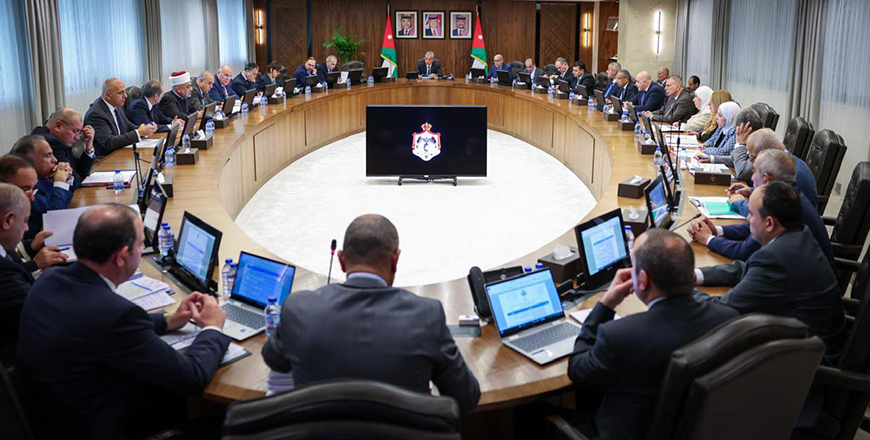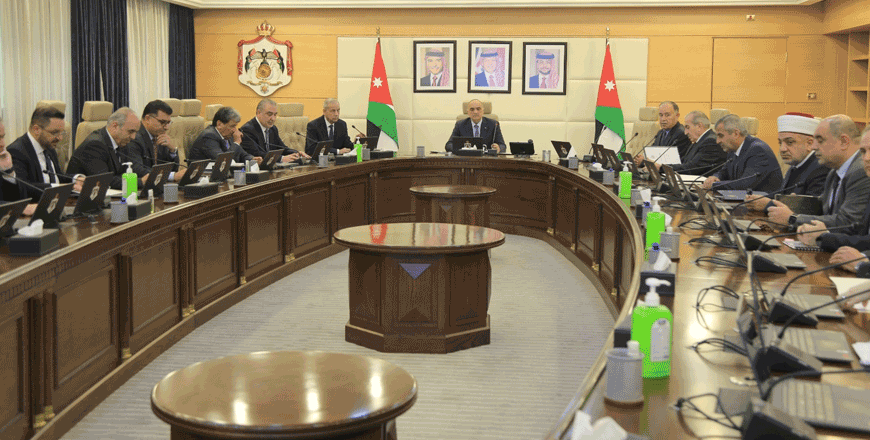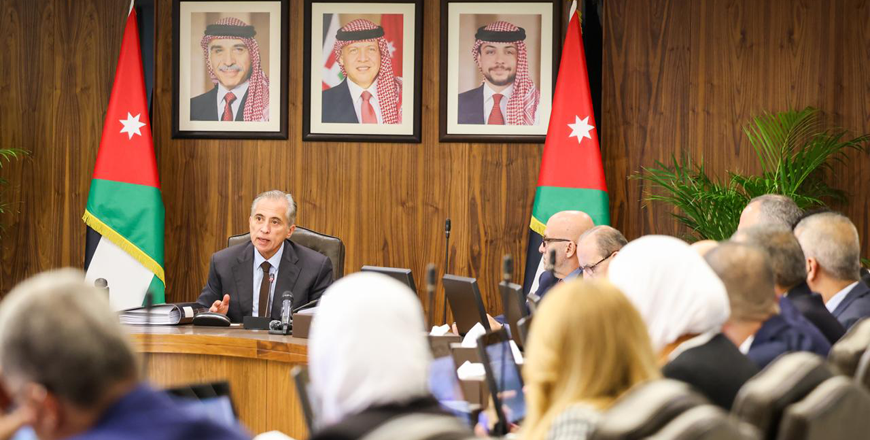You are here
Cabinet endorses amendments to Awqaf Law, restructures education sector
By JT - Apr 27,2025 - Last updated at Apr 27,2025

The Cabinet on Sunday, during a session chaired by Prime Minister Jafar Hassan, approves the draft amendment to the 2025 Awqaf, Islamic Affairs, and Holy Sites Law (Petra photo)
AMMAN — The Cabinet on Sunday, during a session chaired by Prime Minister Jafar Hassan, approved the draft amendment to the 2025 Awqaf, Islamic Affairs, and Holy Sites Law, aimed at restructuring the Awqaf Council, improving endowment investments, regulating Hajj fund assets, and expanding Quran printing programs.
The amendment grants exclusive responsibility for issuing fatwas to the General Iftaa Department, according to a Prime Ministry statement.
The Cabinet also endorsed the rationale for establishing a new Ministry of Education and Human Resources Development, which will replace the current Ministries of Education and Higher Education.
The restructuring aims to unify educational leadership, enhance Jordan’s competitiveness in human capital, and align academic outcomes with labour market needs.
The move also seeks to bolster the independence of Jordanian universities and promote decentralised management.
The Cabinet also approved amendments to rename the Food Security Council as the Supreme Council for Food Security, chaired by the Prime Minister, to reinforce national efforts in securing food resources.
On labour market policy, the Cabinet approved an amendment to the work permit fees regulation for non-Jordanians for 2025. The change aims to reduce financial burdens on employers and encourage investment by offering reduced fees for highly specialised foreign workers who are not available in the local labour market.
For example, the fee for special skills permits will be reduced from JD2,250 to JD1,500, particularly benefiting sectors like automation, AI, and industrial and IT technologies.
The amendment also eliminates the requirement for a temporary leave permit for foreign workers wishing to exit the Kingdom during the validity of their work permit. Additionally, a new category of permit for workers in residential buildings will be introduced to regulate this previously unregulated sector and ensure better supervision.
On the international front, the Cabinet approved several memoranda of understanding to strengthen cooperation in key sectors, including electronic communications and digital security with the Romanian Telecommunications Authority and the European Network Coordination Centre.
Additionally, a Memorandum of Understanding was approved with the Palestinian Civil Service Bureau to enhance collaboration in human resources development and public administration reform.
Related Articles
AMMAN — Tamkeen for Legal Aid and Human Rights has welcomed the Cabinet’s recent approval of the amended 2025 Work Permit Fee Regulation for
AMMAN — The Cabinet on Sunday approved the procedures necessary for facilitating the transfer of non-Jordanian workers in various economic s
- Gov't endorses digital transformation, flexible work measures- Phosphate mining concessions, green hydrogen investments approved&nbs














